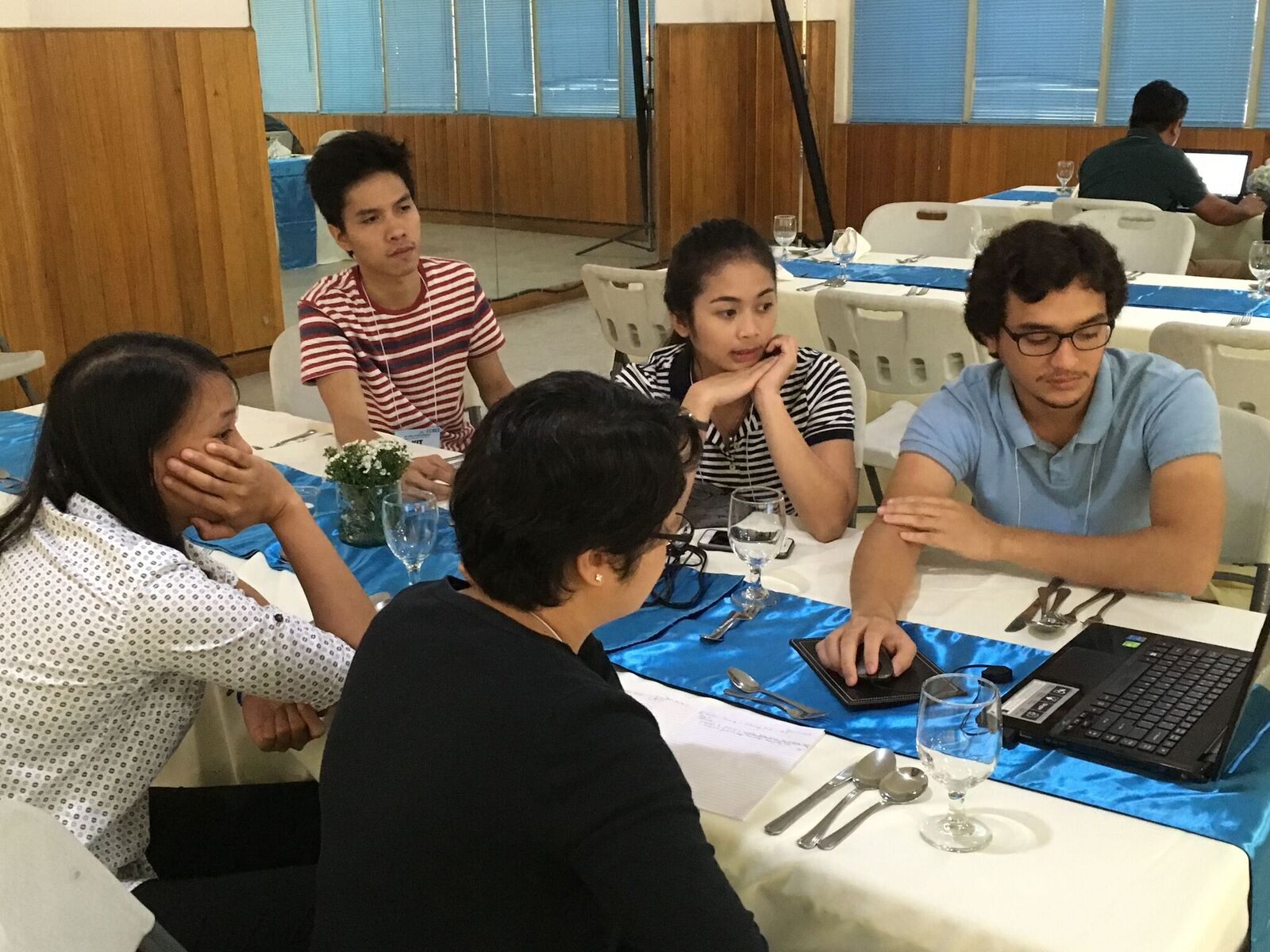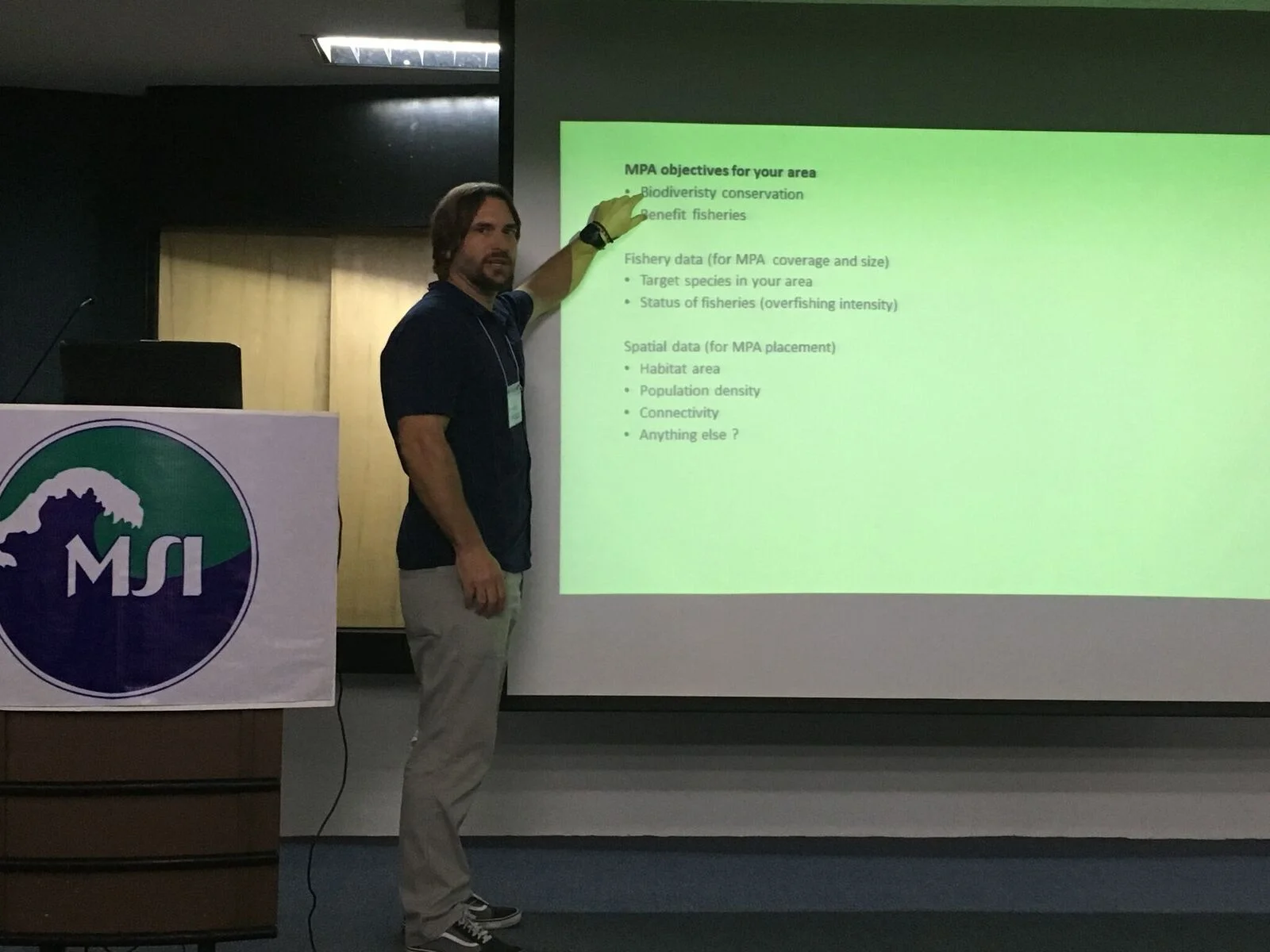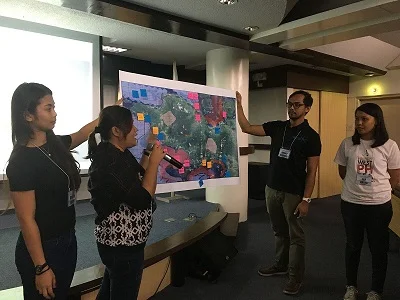Marine Protected Areas design: Workshop in Manila
During the week of June 26-30 2017, CCRES held a week-long workshop in Manila, Philippines, demonstrating the tools and innovations the CCRES science & discovery team has been developing to help provide improved support for Marine Protected Area (MPA) design. The workshop was run by Dr. Nils Krueck from MSEL, Dr. Vera Horigue from UP-MSI, Madeline Davey from MSEL, and Kubi Follosco from CCRES Philippines.
With 15 attendants from across the Philippines, the workshop introduced the participants to CCRES, the current practices for MPA design, the advanced MPA tools developed by the CCRES team and discussed data collection, data requirements, and potential issues for MPA design. The workshop had a strong emphasis on the individual case studies, assisting the participants in the early stages of comprehensive MPA design and planning; focusing on marine conservation, connectivity, size and fisheries management and productivity.
The workshop was comprised of lectures on the tools, with the first three days focusing on Marxan, and then moving onto MPA coverage and size and MPA placement and larval dispersal. Day four demonstrated the fish SPACE tool and lectures on data needs and challenges. Day five, the final day of the workshop, was spent developing the partner case studies, assessing what data they had, what data would be of benefit and working this into GIS.
Following the morning lectures, the participants were given tasks related to that days topic. Participants were tasked with mapping out ideal MPA locations based on spatial data including threats, fishing pressure and coral reefs, while considering different stakeholder perspectives. Other activities included computing and then justifying marine reserve size, looking at short-term fishery impacts, running data in Marxan then mapping this in GIS, and entering metrics for the fish SPACE tool.
Both the lectures and activities were designed to provide in-depth understanding of the CCRES tools, allowing participants to gain the knowledge to then take data from their selected sites and produce optimal design from the data available. The workshop focus also allowed participants to realise there can be a win-win for fisheries management and marine conservation.
The workshop proved an outstanding success, with participants’ response, participation and understanding of the tools exceeding expectations. The workshop enforced that the tools are of great value to the participants, and there is great hope optimal MPA’s, using the CCRES tools, can be planned and implemented in the Philippines. The MSEL is very grateful to all the participants who attended the workshop and are looking forward to running future workshops with advances in the existing tools, allowing them to be utilised fully with the case studies of each participating agency.



